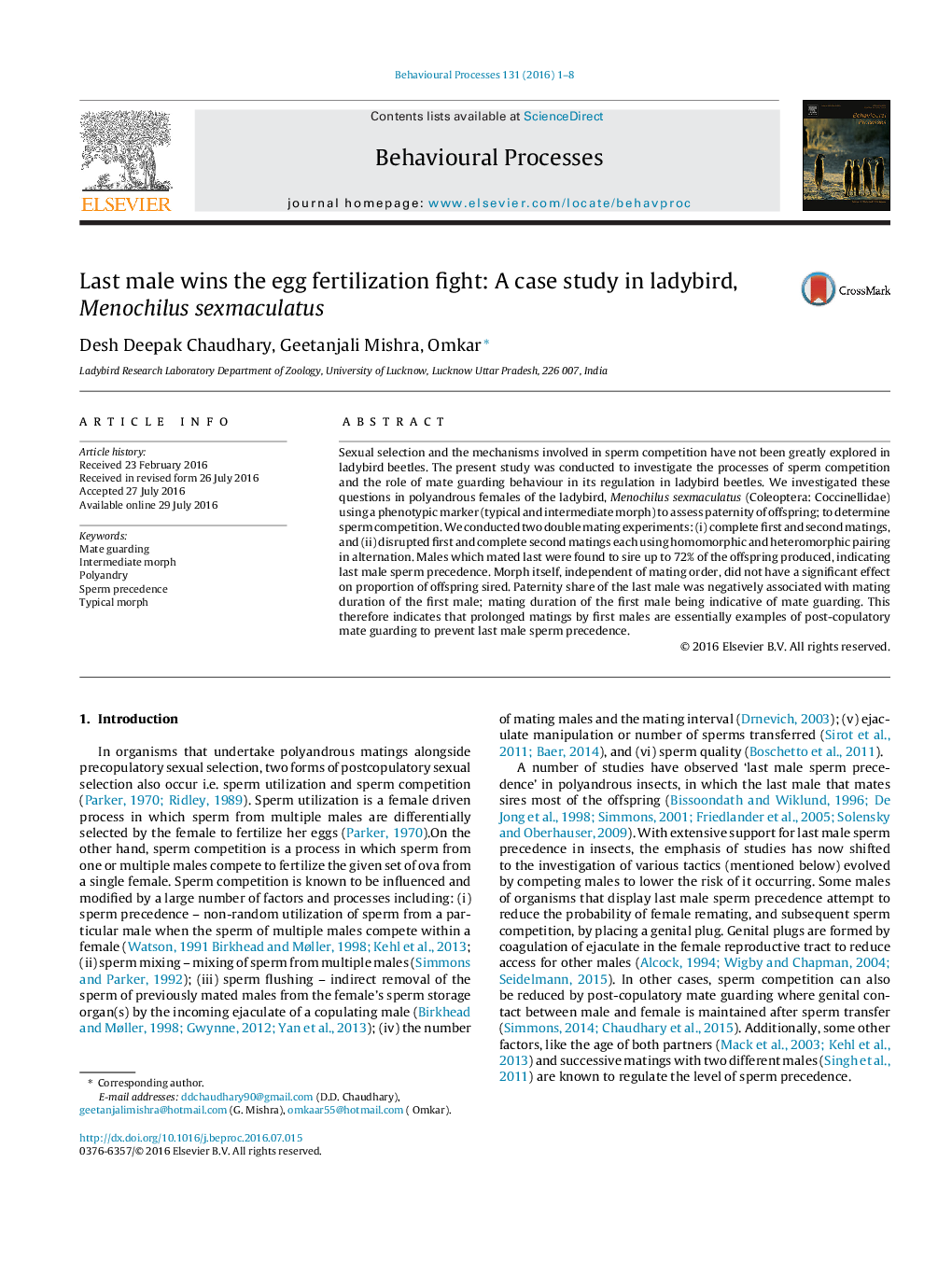| Article ID | Journal | Published Year | Pages | File Type |
|---|---|---|---|---|
| 2426362 | Behavioural Processes | 2016 | 8 Pages |
•Last male sperm precedence occurs in ladybird.•Post copulatory mate guarding reduces the last male sperm precedence.•Proportion of offspring sired was independent of mating order and morph.•Fecundity in double mating experiment not influence by last male morph.•Percent egg viability in double mating experiment not influence by last male morph.
Sexual selection and the mechanisms involved in sperm competition have not been greatly explored in ladybird beetles. The present study was conducted to investigate the processes of sperm competition and the role of mate guarding behaviour in its regulation in ladybird beetles. We investigated these questions in polyandrous females of the ladybird, Menochilus sexmaculatus (Coleoptera: Coccinellidae) using a phenotypic marker (typical and intermediate morph) to assess paternity of offspring; to determine sperm competition. We conducted two double mating experiments: (i) complete first and second matings, and (ii) disrupted first and complete second matings each using homomorphic and heteromorphic pairing in alternation. Males which mated last were found to sire up to 72% of the offspring produced, indicating last male sperm precedence. Morph itself, independent of mating order, did not have a significant effect on proportion of offspring sired. Paternity share of the last male was negatively associated with mating duration of the first male; mating duration of the first male being indicative of mate guarding. This therefore indicates that prolonged matings by first males are essentially examples of post-copulatory mate guarding to prevent last male sperm precedence.
